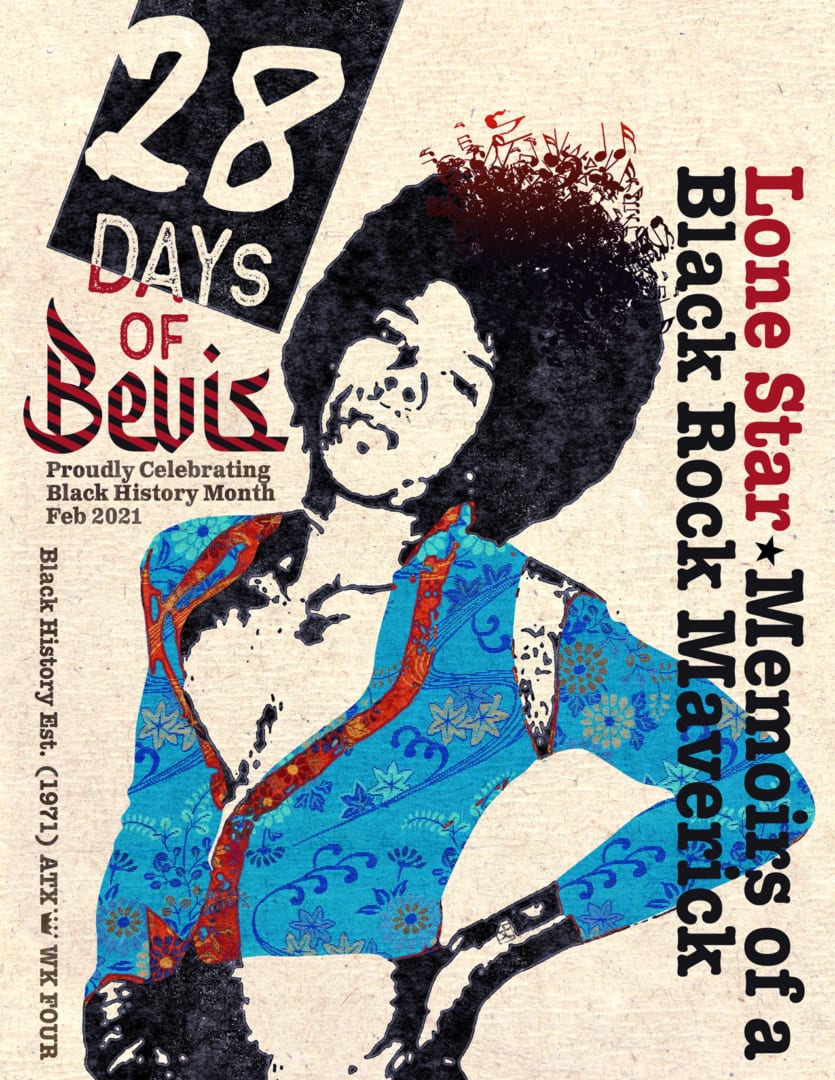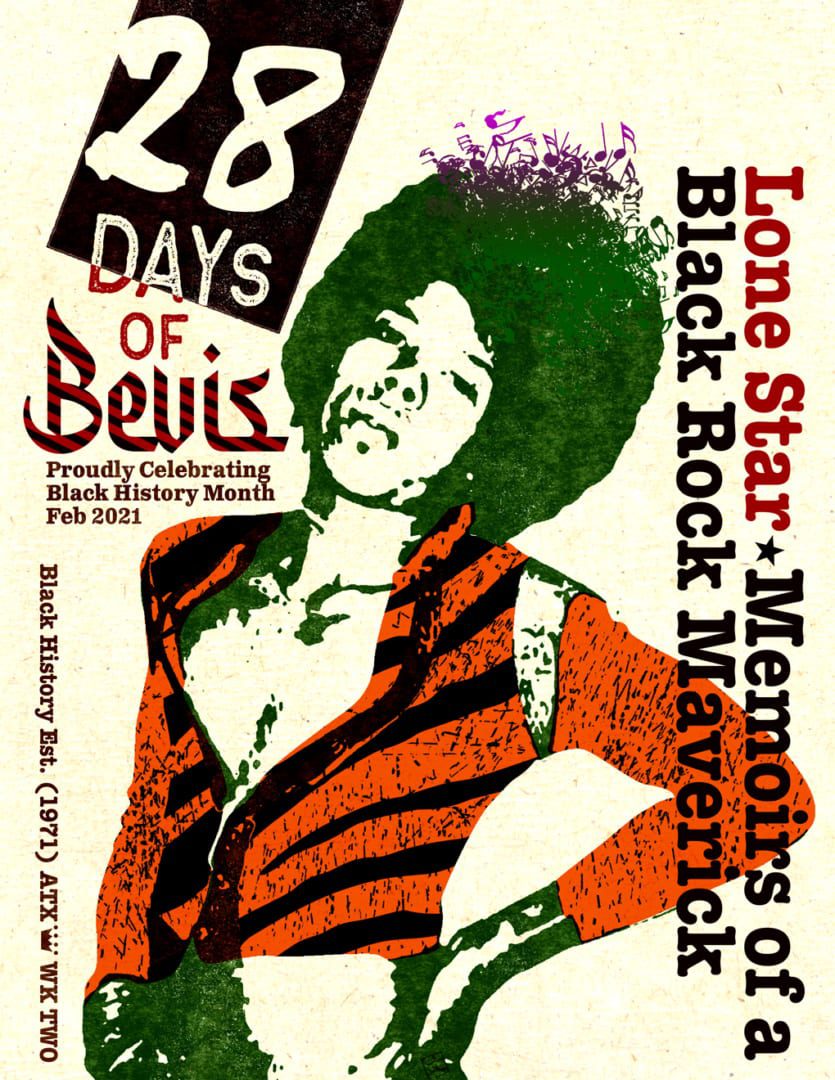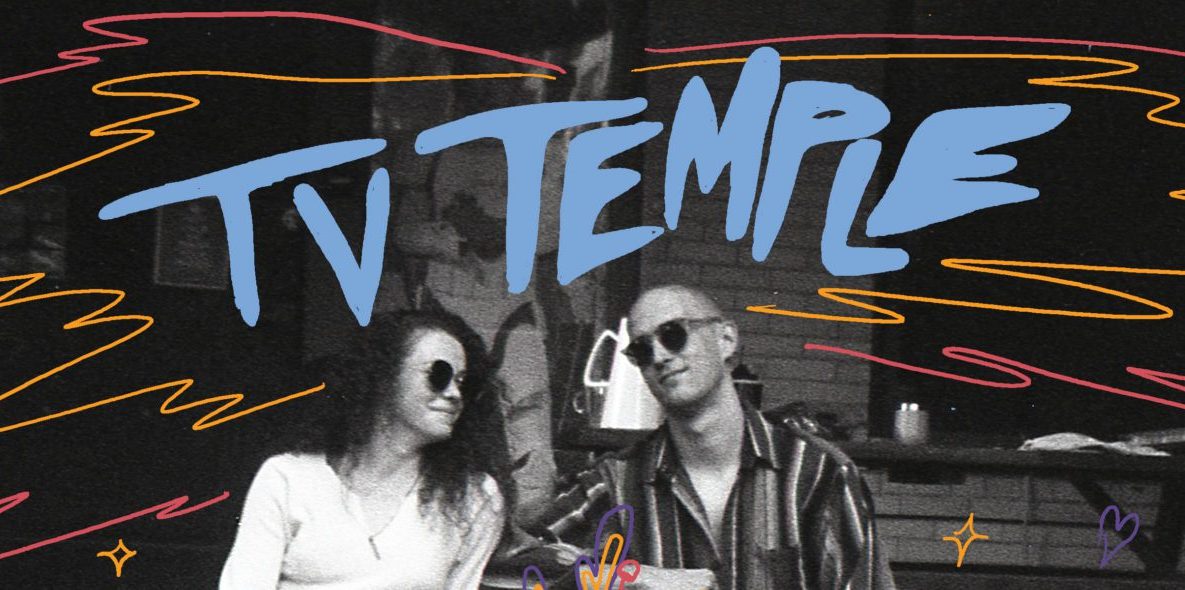28 Days of Bevis Griffin, Day 26: Bevis – Black and Boundless, Part 2
Written by Joah Spearman
One night in 1978 at the punk music venue Raul’s, Bevis Griffin was introduced to guitarist and songwriter Chris Bailey, a fellow Southern California native who shared an inexplicable love for both Parliament Funkadelic and Black Sabbath, something uncommon at the time to say the least. Soon thereafter, Chris and Bevis enlisted Jimmy Saurage to form The Skyscrapers, and would soon join-forces with The Shades also, both of which were high-profile bands that would more fully leverage their dual musical talents by leading them to opening slots for punk-rock legends The Ramones, Iggy Pop, and The Clash.
 “I was very fortunate to meet Chris Bailey at Raul’s, where we subsequently formed our first noteworthy project, The Skyscrapers,” said Bevis. “…My musical chemistry and personal synergy with Chris is strangely empathic and effortless, and therefore, we have been successfully working together off-and-on over the past 3 decades… He is arguably one of the greatest musicians I’ve ever known, or had the privilege of working with, bar none, hands-down.”
“I was very fortunate to meet Chris Bailey at Raul’s, where we subsequently formed our first noteworthy project, The Skyscrapers,” said Bevis. “…My musical chemistry and personal synergy with Chris is strangely empathic and effortless, and therefore, we have been successfully working together off-and-on over the past 3 decades… He is arguably one of the greatest musicians I’ve ever known, or had the privilege of working with, bar none, hands-down.”
With The Fabulous Thunderbirds securing a recording contract in 1979 it seemed destined that Bevis and Co. would follow suit and put their reckless abandon toward the live show on wax. Always looking for new and hungry collaborators, Bevis and Chris teamed up with bassist Courtney Audain and ex-Skunks drummer Billy Blackmon to form The Bats. They soon became regulars at the newly reopened Continental Club, Mother Earth, and a brand new venue curiously named Club Foot, and was a finalist for the 1980 debut of The Austin Chronicle music poll in the “Best New Rock Band” category while gaining rare publicity in Esquire, Texas Monthly and Rock Scene magazine.
By this time Stevie Ray Vaughn was building significant hype around Texas and Ray Benson was showing interest in managing both he and Bevis Griffin. As a matter of fact, due to explosive live performances, ever-mounting local and national press, and viral street buzz, Bevis’ stock had never been higher. In 1980, The Bats recorded an impressive six-song demo at the recently opened Third Coast Studios, with D-Day’s manager Lisa O’Leary – having already gotten her band a major record deal – financing the sessions as executive producer. Aptly supported by chief engineer Patterson Barrett at the mixing-board, Bevis confidently showcased his burgeoning prowess as a lead vocalist, drummer, and songwriter. Eventually, with the demo making the industry rounds highlighted by their single “I Ain’t Keith Richards”, The Bats eventually had to change their name to the enigmatic moniker Banzai Kik in order to avoid trademark and identity conflicts with an up-and-coming New Zealand band who were already touring with the same name.
In 1990, with a head full of new songs he forged an exclusive management agreement with the new and aptly named Resurrection Management. With his newfound financial resources firmly intact Bevis next rented a large home in S. Austin as a temporary Texas base-camp while springing back to NYC as often as needed during his hunt for the next-big-thing on his musical agenda.
During these halcyon days, he would effectively collaborate on a number of disparate projects and bands with the likes of Avant-synth-savant Kurt Otto, (Rawhead-TechX), Will Sexton, and Alejandro Escovedo, (The Cosmopolitans) and still tour state-wide with blues mavens, Solid Senders. The Continental Club owned by his former Chill Factor manager Steve Wertheimer, became Bev’s musical laboratory and social playground. He was finally back on top!

In 1997, Bevis joined the swamp-funk-mob Papa Mali and The Instigators and within a few months they quickly became a highly sought after local sensation by opening for the likes of world-renowned acts such as Maceo Parker, The Funky Meters, War, and The Neville Brothers in the late ’90s at Liberty Lunch, Antones’, The Backyard and a host of notable Austin venues as the city enhanced its profile as “the Live Music Capital of the World”.
Having evolved from an upstart musician, to talk of the town, to the “next big thing”, before epitomizing the cliché of the “near-miss” story, Bevis knows that although his story isn’t one of Grammys, platinum records, or headlining gigs around the world; instead, his is one of tireless ambition, audacious creativity, indomitable optimism, and the undaunted quest for artistic bliss.
In today’s society, we praise the industry-lauded artist with one hit song or sound who popularizes themselves via YouTube, Twitter, and pop culture sensationalism. Bevis’ musical career, spanning some four decades, is the exact opposite, emanating cutting-edge sensibilities, integrity, tenacity, and kindred musical kinships (with Stevie Ray Vaughn and Living Colour’s Vernon Reid to name a couple) and a genuine lust for musical expression.
Even after receiving a mayoral proclamation ceremony and an eponymous key to the City of Austin in 1998, a crowning achievement for any musician who can call the “Live Music Capital” home, and continuing on to his recent induction into the venerable halls of the Texas Music Museum, Bevis Griffin boldly continues along his time-worn path of music’s allure, investigating uncharted musical vistas, navigating, and collaborating his way toward the future, never resting on his laurels as Texas’ first Black hard-rock maverick.
Joah Spearman is the CEO of Localeur and Former Vice Chair of the Austin Music Commission.








